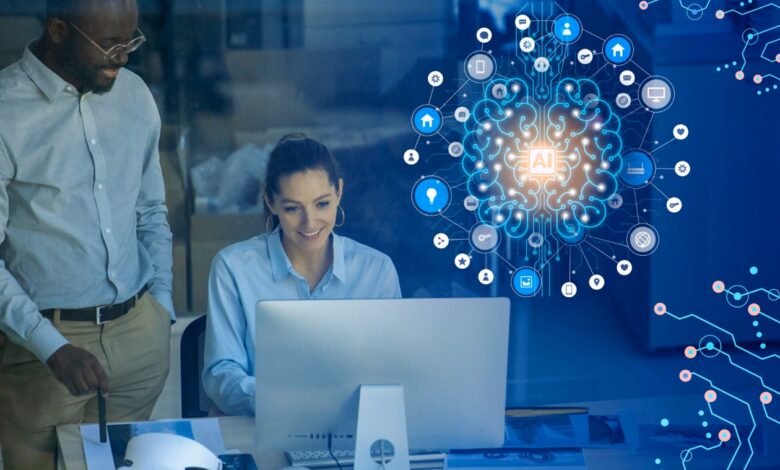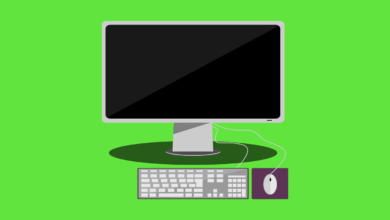The Future of Cybersecurity for Individuals

Do you know The Future of Cybersecurity for Individuals? In today’s rapidly evolving digital landscape, where technology plays an indispensable role in our daily lives, the significance of cybersecurity has grown immensely. As individuals become increasingly interconnected through the internet, it’s crucial to understand the ever-changing landscape of cybersecurity and the measures needed to safeguard personal information and digital assets. This article delves into the future of cybersecurity for individuals, exploring emerging trends, challenges, and proactive steps that individuals can take to protect themselves online.
Future of Cybersecurity for Individuals
In an era defined by technology, the future of cybersecurity holds both promise and challenges. As our reliance on digital platforms intensifies, individuals must brace themselves for an array of sophisticated cyber threats that can compromise their personal data, financial assets, and even their privacy.
The Rising Threat Landscape
Cyber threats are evolving at an alarming pace. From traditional phishing attacks to more advanced malware and zero-day exploits, individuals are facing a barrage of potential risks whenever they connect to the internet.
Artificial Intelligence and Machine Learning in Cybersecurity
AI and machine learning are revolutionizing cybersecurity for individuals. They enable systems to detect and respond to threats in real time, providing an extra layer of defense against complex attacks.
Read More: The Importance of Cyber Laws in Pakistan
Biometric Authentication: Enhancing Digital Identity Protection
Passwords are no longer enough to secure accounts. Biometric authentication, utilizing fingerprints, facial recognition, and even iris scans, offers a more robust and convenient way to protect digital identities.
Privacy in the Age of IoT
The proliferation of Internet of Things (IoT) devices has opened new avenues for cyber intrusions. Safeguarding personal privacy amid constant connectivity is a growing concern.
The Role of Blockchain in Personal Data Security
Blockchain’s decentralized nature and strong encryption make it a potential game-changer in personal data security. It can empower individuals with control over their data.
Ransomware and Extortion: A Growing Concern
Ransomware attacks are becoming more targeted and damaging. Individuals are at risk of losing access to their own data unless a ransom is paid, highlighting the urgency of robust cybersecurity measures.
Cloud Security: Balancing Convenience and Safety
Cloud services offer unparalleled convenience, but their security vulnerabilities can’t be ignored. Striking the right balance between convenience and safety is imperative.
Social Engineering Attacks: Manipulating the Human Element
In the intricate landscape of cybersecurity for individuals, one of the most cunning and deceptive tactics employed by cybercriminals is social engineering. Unlike traditional hacking methods that target technical vulnerabilities, social engineering focuses on manipulating the human element – our psychology, emotions, and behaviors – to gain unauthorized access or extract sensitive information.
Understanding the Psychology Behind Social Engineering
Social engineering attacks are a testament to how cybercriminals exploit fundamental aspects of human nature. These attackers understand that humans can be the weakest link in the security chain. They prey on emotions such as fear, curiosity, and urgency, leveraging these feelings to bypass even the most robust technical defenses.
Common Techniques Used in Social Engineering Attacks
Phishing: This classic technique involves sending seemingly legitimate emails that prompt recipients to take action, such as clicking on malicious links or providing personal information. The emails often appear to be from reputable sources, tricking individuals into divulging sensitive data.
Baiting: In this method, attackers offer something enticing, like a free download or a discount, to lure individuals into downloading malware or disclosing their credentials.
Pretexting: Attackers create a fabricated scenario or pretext to manipulate individuals into revealing confidential information. This could involve impersonating a co-worker, authority figure, or service provider to gain trust.
Quid Pro Quo: Cybercriminals promise something in return for information. For instance, they might impersonate IT support and offer help in exchange for login credentials, exploiting the recipient’s desire for assistance.
Protecting Yourself Against Social Engineering
- Educate and Raise Awareness: Individuals should be aware of common social engineering tactics and should always be skeptical of unsolicited requests for information, especially if they come through email, social media, or phone calls.
- Verify Requests: Before divulging any sensitive information or acting on a request, verify the authenticity of the request through a separate communication channel. For instance, if you receive an email, contact the supposed sender using a verified phone number.
- Think Before You Click: Be cautious about clicking on links or downloading attachments from unknown sources. Hover over links to see the actual URL before clicking, and only download files from trusted websites.
- Keep Personal Information Private: Be mindful of how much personal information you share on social media platforms. Cybercriminals often mine these platforms for details that can be used to craft convincing attacks.
- Regularly Update Passwords: Use strong, unique passwords for each account, and update them regularly. Consider using a password manager to keep track of complex passwords.
Social engineering attacks highlight the crucial role that human psychology plays in the realm of cybersecurity for individuals. To effectively protect ourselves, we must remain vigilant, skeptical of unsolicited requests, and always prioritize verifying the authenticity of any communication that asks for sensitive information. By understanding the tactics used by cybercriminals, we can build a strong human firewall that complements technical security measures.
Quantum Computing and Cryptography
The advent of quantum computing poses a potential threat to conventional cryptography. Individuals and organizations need to adapt cryptographic methods to remain secure in a post-quantum world.
The Importance of Cybersecurity Education
Promoting cybersecurity education is vital. Individuals need to be aware of best practices, from recognizing phishing attempts to understanding the importance of software updates.
Government Regulations and Digital Protection
Governments are recognizing the need for robust cybersecurity regulations. Stricter guidelines can compel organizations to enhance their cybersecurity measures, indirectly benefiting individuals.
Securing Smart Cities of the Future
As cities become smarter and more connected, ensuring their cybersecurity for individuals becomes paramount. Individuals living in smart cities must be assured that their data is protected from potential breaches.
A Holistic Approach to Cyber Hygiene
Cyber hygiene involves consistent practices that minimize risks. From using strong, unique passwords to regularly updating software, a holistic approach is crucial for individual protection.
The Human Firewall: Promoting a Culture of Security
Individuals can be the first line of defense. Fostering a culture of security, where everyone is vigilant and proactive, creates a human firewall against cyber threats.
Read More: How to Choose a Cybersecurity Solution
Conclusion: Future of Cybersecurity for Individuals
In conclusion, the future of cybersecurity for individuals is a landscape marked by both opportunities and challenges. As technology continues to evolve, so do the tactics employed by cybercriminals, making it imperative for individuals to stay informed and proactive. By understanding the trends discussed in this article and embracing the recommended strategies, individuals can build a robust defense against potential threats.
The responsibility of safeguarding personal information and digital assets rests not only with technology but also with the individuals who interact with it. The journey towards a secure digital future requires continuous education, adaptability, and a commitment to best practices. As we navigate the complexities of the digital age, let us remember that the power to protect ourselves lies in our hands – in our decisions to adopt strong passwords, verify requests, and cultivate a culture of security. By doing so, we can confidently embrace the technological innovations that await while ensuring our personal safety and privacy remain steadfastly intact.
FAQs: Future of Cybersecurity for Individuals
How can biometric authentication enhance cybersecurity?
Biometric authentication adds an extra layer of security by relying on unique physical traits like fingerprints or facial features.
What is the role of AI in cybersecurity?
AI assists in real-time threat detection and response, helping to identify and mitigate potential risks more effectively.
Why is quantum computing a concern for cybersecurity?
Quantum computing’s immense processing power could potentially break current encryption methods, requiring new approaches to digital security.
How can individuals contribute to cybersecurity in smart cities?
By being cautious with personal data sharing and supporting cybersecurity initiatives, individuals can help protect their data in smart urban environments.
What can I do to prevent falling victim to social engineering attacks?
Being skeptical of unsolicited requests, verifying identities, and not sharing sensitive information can all help prevent social engineering attacks.












One Comment